In this excerpt, Maestro Andrés discusses his reasons for no longer participating in the Congo tradition and the changes he has seen in the tradition with the advent of “the road.”
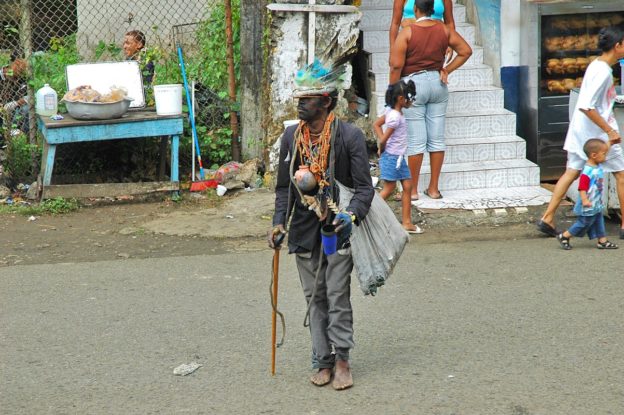


In this excerpt, Maestro Andrés discusses his reasons for no longer participating in the Congo tradition and the changes he has seen in the tradition with the advent of “the road.”

In this excerpt, Chavarría discusses the meaning and purpose of the Congo tradition as well as a recent opportunity to talk about the Portobelo Congo tradition with a colleague from the Democratic Republic of Congo.
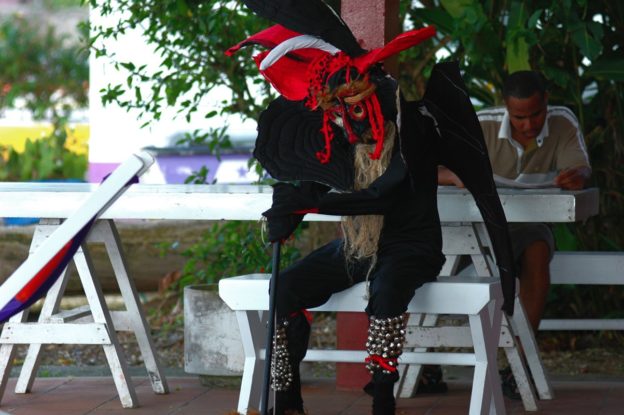
In this excerpt, Chavarría discusses the significance and meaning of the devil character in the Congo tradition.
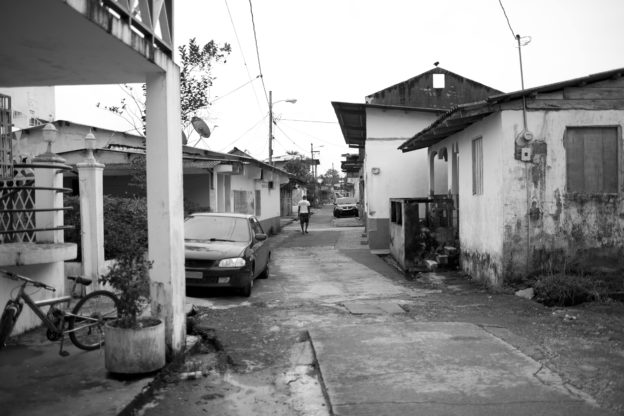
In this excerpt, Chavarría shares memories about how the Congo tradition of Portobelo was enacted before “the road” opened up the town to the broader community. Then, Congo carnival was a intimate community celebration in which everyone participated.
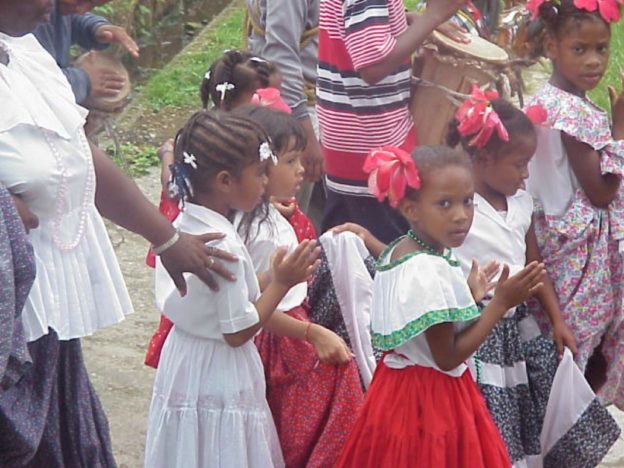
In this excerpt, he discusses his favorite childhood memories of the tradition when the town was more isolated and Congo communities visited each other via boat during carnival season.
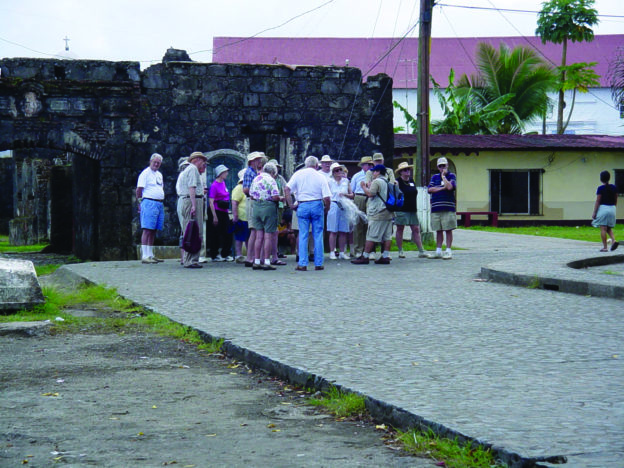
In this excerpt, Maestro Andrés discusses the impact of tourism on the tradition, including the monetization of various aspects and changes in costuming. In describing the current tradition, he references the impact of the “the road” on the town. At this point in the recording, the tape appears to have sped up causing distortion.
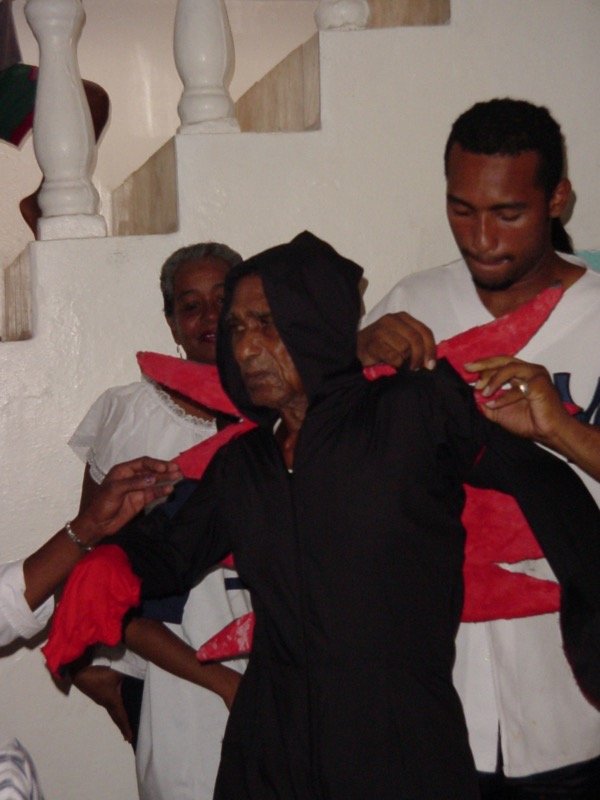
In this excerpt, Chavarría discusses his memory of the last time the renowned Celedonio Molinar performed as devil and how his mentor retired in 2003 after being honored at that year’s Festival de los Diablos.
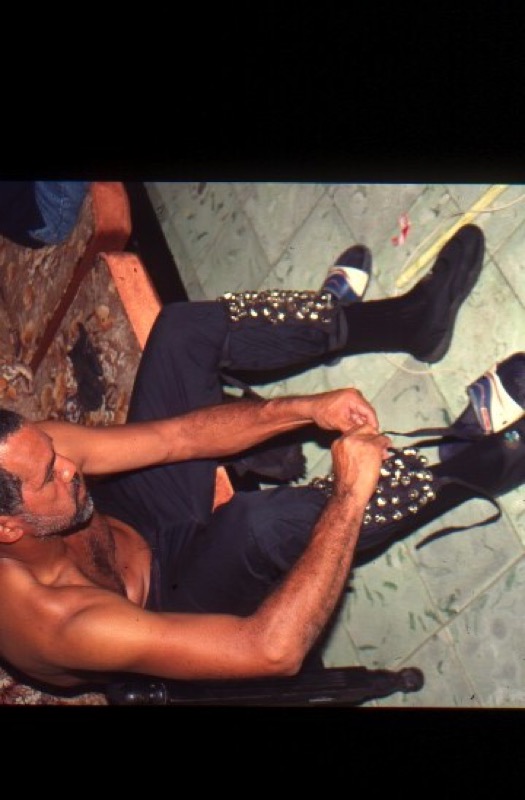
In this excerpt, Chavarría talks about his choice to play the devil role in the Congo tradition and shares his memories of how he came to play the role for the first time as a school-aged boy.
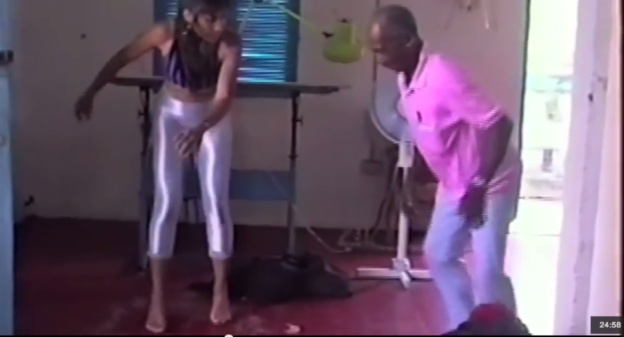
In this excerpt, Solís discusses studying the dance of the devil in 1994 under the tutelage of Celedonio Molinar, legionary Major Devil of Portobelo, Panama and receiving permission from the Congo King and Queen to dress and dance as a devil in 1995.
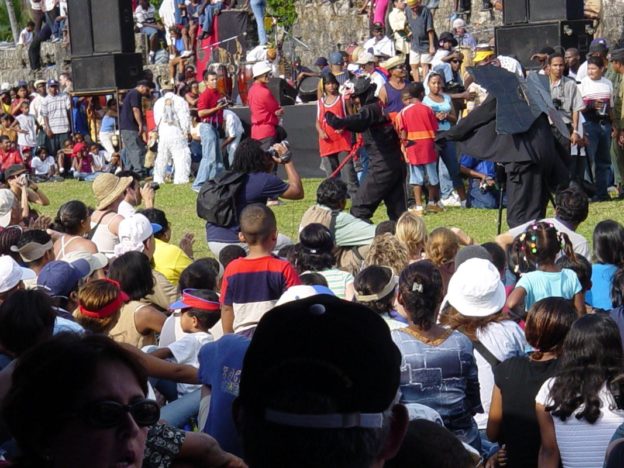
In this excerpt, Solís discusses the one-person performance that she created through her theater company to celebrate Celedonio and the Major Devil tradition of Portobelo, Panama.